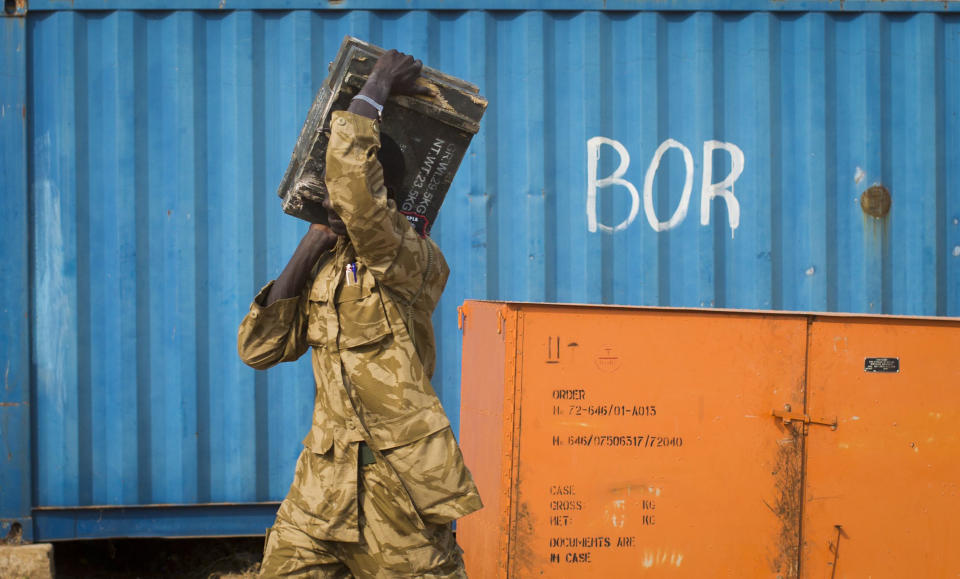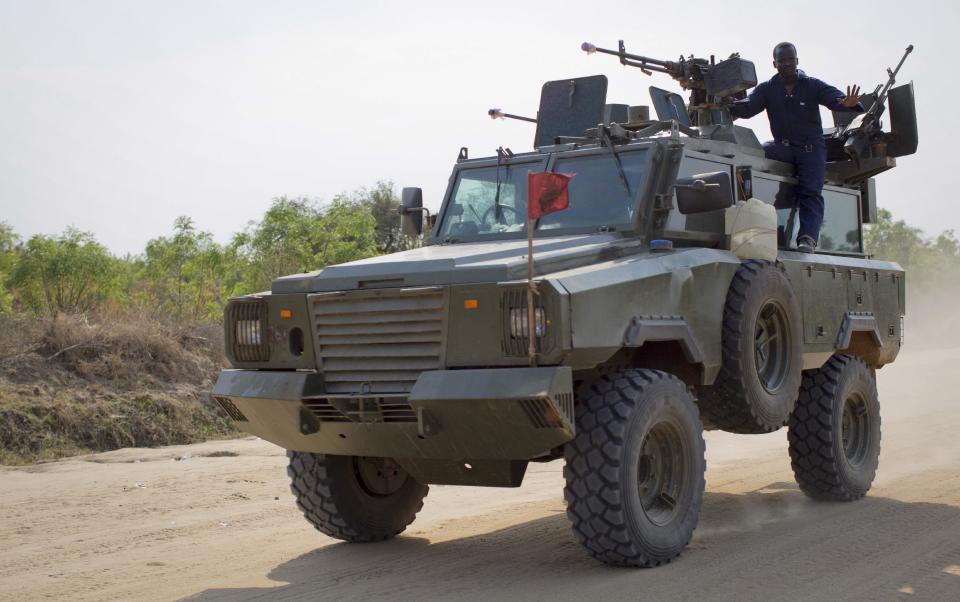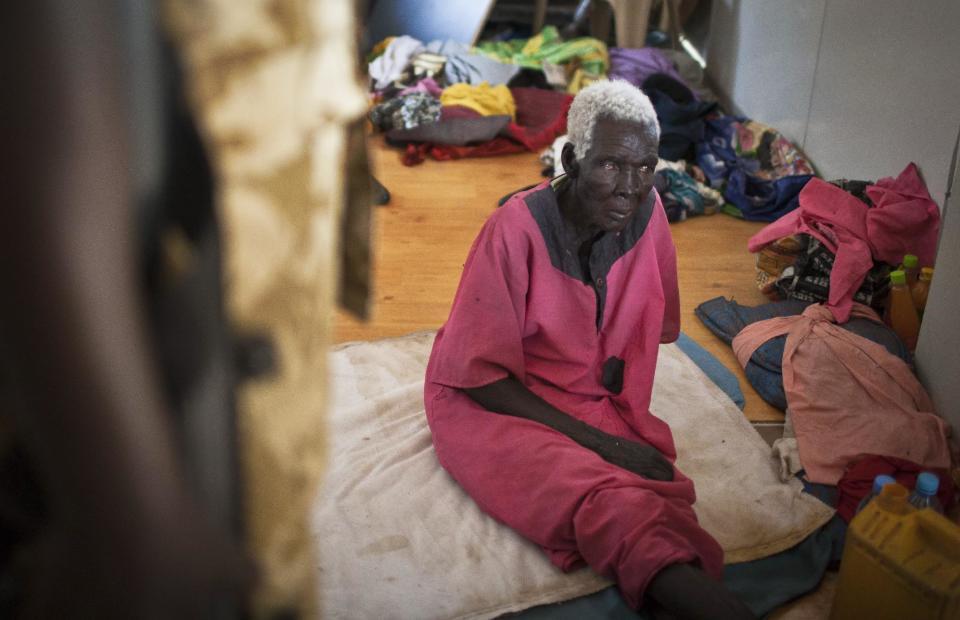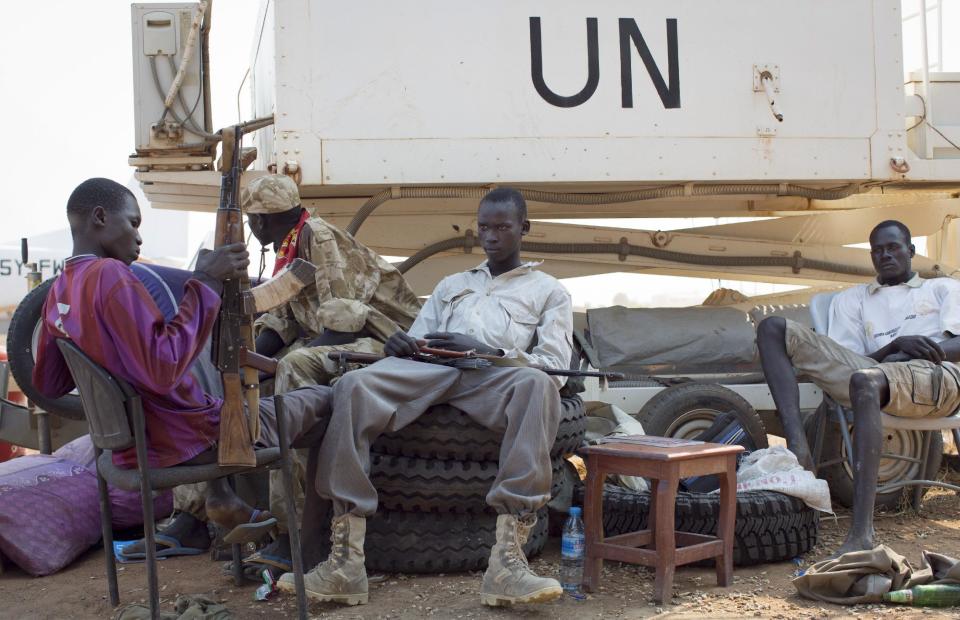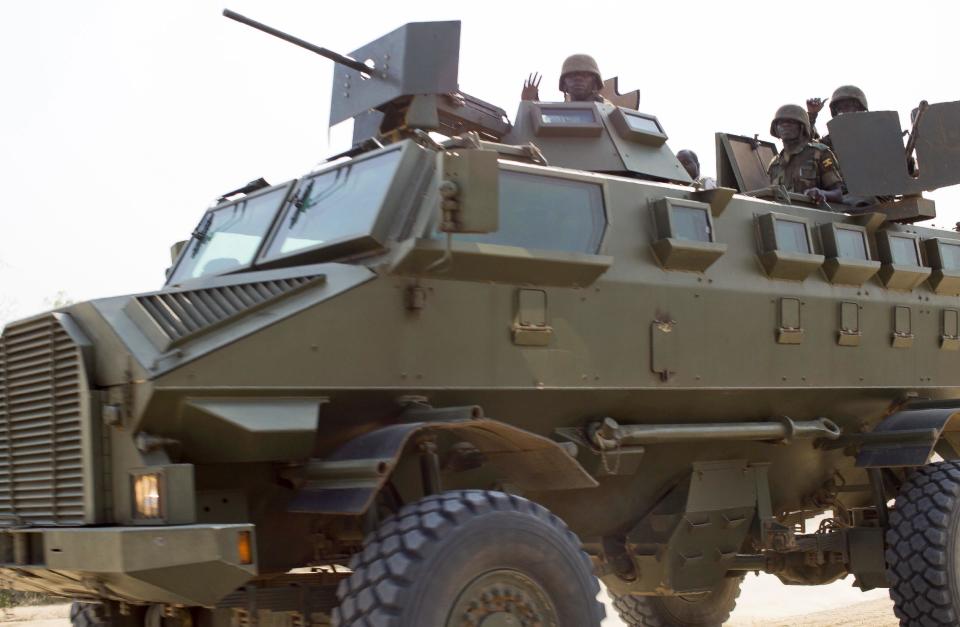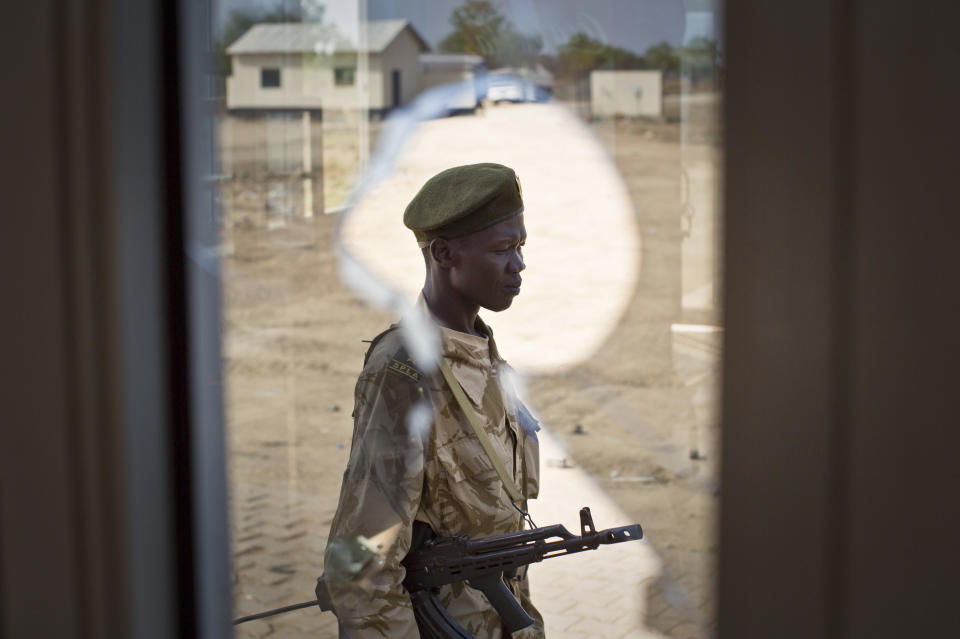In S. Sudan, rebel-held town of Bor destroyed
BOR, South Sudan (AP) — Bor is a ghost town. Every shop is looted and empty. Bodies lay on the ground, and English-language graffiti curses the ethnic group of President Salva Kiir, a sign of the ethnic tensions here.
Near the airport, three bodies lie on a road littered with trash and goods. Shipping containers are pried open and their contents ransacked. Smashed cars and motorbikes litter the dusty streets.
Backed by Ugandan troops and fighter aircraft, South Sudan's military retook Bor from rebels over the weekend, as more cities fall back under government control like dominoes. The government said Monday it has regained control of Malakal, the capital of oil-producing Upper Nile state.
Negotiators for President Salva Kiir, an ethnic Dinka, and former Vice President Riek Machar, an ethnic Nuer, told reporters over the weekend that a cease-fire was close at hand. But a Twitter feed believed controlled by Machar said Monday there won't be a cease-fire until Ugandan troops leave and political detainees are released. The government insists that the detainees go through South Sudan's judicial process.
Kiir late Monday said he would pardon Machar if he surrenders.
Thousands of people have been killed in fighting since Dec. 15, and an estimated half million people have fled the violence.
Earlier this month, tens of thousands of Bor residents fled across the White Nile River as rebels rushed into Bor. Thousands of other citizens remain in the U.N. compound. The aftermath of the killings and looting that occurred in this arid town is readily apparent.
In Bor's hospital, the smell of death and body fluids is overwhelming.
A dead body lies stiffly on a hospital bed. The pools of dry blood beneath suggest the person has been dead for quite a while, another one of the thousands of victims of the war in the world's newest country.
A frail woman, Mary, was caring for two other women sleeping on a mattress in an empty ward that holds a single decomposing body. She said she had to help those too weak to flee the fighting.
"I am here to help them. They are sick, cannot move. It is my duty," she said.
A United Nations humanitarian charter plane on Tuesday will on behalf of UNICEF deliver humanitarian supplies, including medicine and medical equipment, the U.N. children's agency said in a statement Monday. It will be the first of two UNICEF humanitarian charters, the agency said.
At the U.N. camp in Bor on Sunday, a disagreement between the government information minister and U.N. personnel escalated from a local dispute into a denunciation by U.N. Secretary-General Ban Ki-moon, a possible sign of growing friction between the government and the U.N.
The U.N. said Ban was "alarmed" at the attempt by senior members of the government to enter the U.N. base and was disturbed that U.N. staff were threatened by the military when they refused soldiers entry.
"This incident is just one of a growing number of violations of the Status of Forces Agreement, making it increasingly difficult for (the U.N.) to implement its mandate and dangerous for United Nations staff working in South Sudan," the U.N. statement said.
South Sudanese officials strongly disputed the U.N.'s version of events. John Kon Kelei, a spokesman at the Information Minister, said the U.N. was distorting the facts.
"The argument was about the U.N. stopping a camera group travelling with the minister. Not guns. The press release is wrong," he said.
The governor of Jonglei state, where Bor is located, urged residents to return now that the military, known as the SPLA, had pushed rebels out and were pursuing them into the countryside.
"The SPLA is now for sure in charge. I hope this will be the last time we fight, they (rebels) will not come again and attack the town," Gov. John Kong said.
Lt. Gen. Malual Ayor Dor, the commanding officer for the Jonglei campaign, told reporters that Ugandan soldiers supported the attack but he said the SPLA bore the brunt of the fighting.
"The Ugandans helped with technical support, advice, and they gave us a push from behind," he said. "Bor is important politically, because the rebellion want to use it to gain a position at the (peace) talks. Jonglei is the biggest state in South Sudan and instability here will be instability to South Sudan."
South Sudan became the world's newest country in 2011, when it broke away from Sudan after an independence vote, the capstone of decades of fighting. The country, one of the world's poorest, derives nearly all of it income from an oil industry that has mostly been idled since the fighting broke out.
